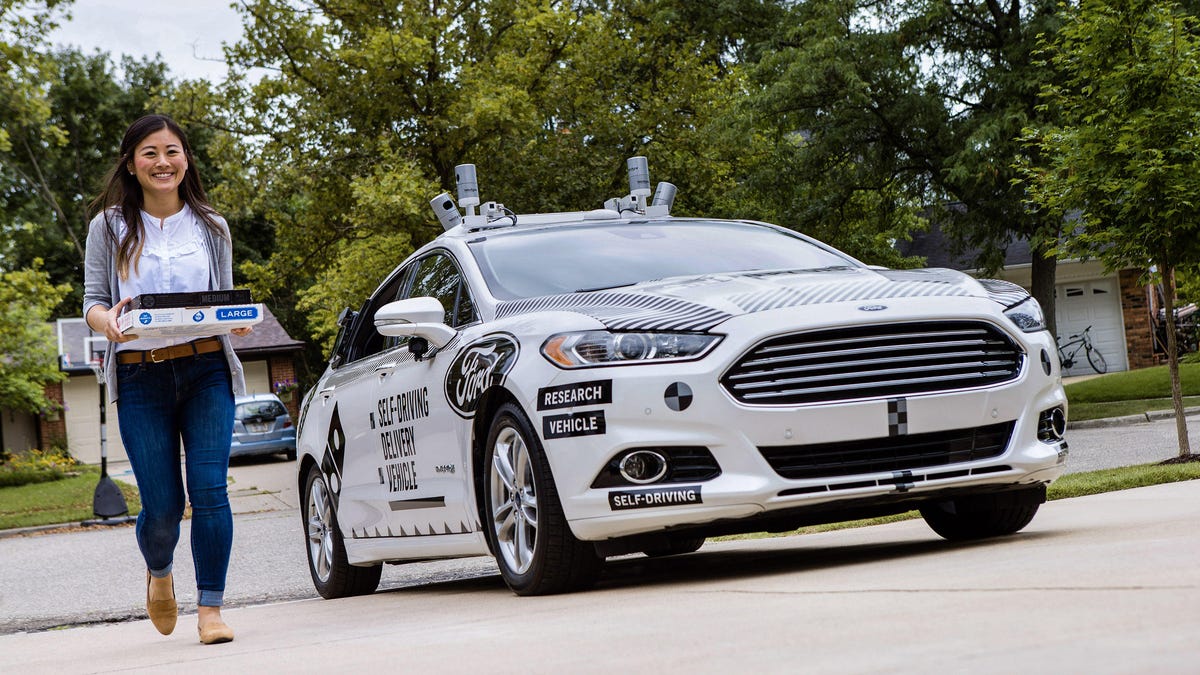Hybrids beat EVs as self-driving cars, Ford exec claims
He's got a point, for now.

General Motors has tied a good bit of its self-driving car development to the battery-electric Chevrolet Bolt EV. But Ford thinks there's a better solution than EVs, at least to start.
Ford will develop its autonomous technology using gas-electric hybrids , not pure electric vehicles, Automotive News reports, citing an interview with Jim Farley, the automaker's top sales exec.
According to Farley, there are several factors in the decision to start with hybrids. For one, current EVs need to leave the road to charge every 250 miles or less, whereas a hybrid's range can extend well beyond that number, and filling a tank is still faster than filling a battery. Fast charging can also contribute to increased battery degradation, which means a company must shell out more money on more frequent battery replacements.
Another downside to a self-driving EV is that you'll never hear it arrive. I mean, that's still a problem with hybrids in electric mode, but eventually that gas engine will kick back in.
What it really boils down to is money. "Anytime you're not carrying goods and people, you're losing money," Farley told Automotive News. "The most important thing is uptime and profitability. What we see... is a much better cost-of-ownership model." As EV market share expands and the tech develops, the aforementioned concerns may disappear, but for these early stages, they're definitely there.
The article also discusses how Ford's initial autonomy strategy will differ from General Motors. While GM is focusing on deploying early self-driving cars in the mobility space -- ride hailing, namely -- Ford wants to start with a commercial push. It's already teased a bit of that with its not-really-autonomous pizza delivery vehicle, which it will use as part of a pilot program to gauge customer reaction to self-driving cars.
Many industries can reap serious benefits from autonomous cars. Chief among those is the reduction of manpower, which is expensive and fraught with regulations. Humans tend to prefer healthcare and to not work 24-hour days, things self-driving cars don't care about. Sounds bleak, right? It's sort of supposed to.
Nevertheless, it's interesting to see the differences in Ford's and GM's approaches to the early days of autonomy. The faster the profits arrive, the more money both companies can dump into the research, continuing the cycle until the robot cars rise up and conquer humanity in a dystopian "Terminator" event.

